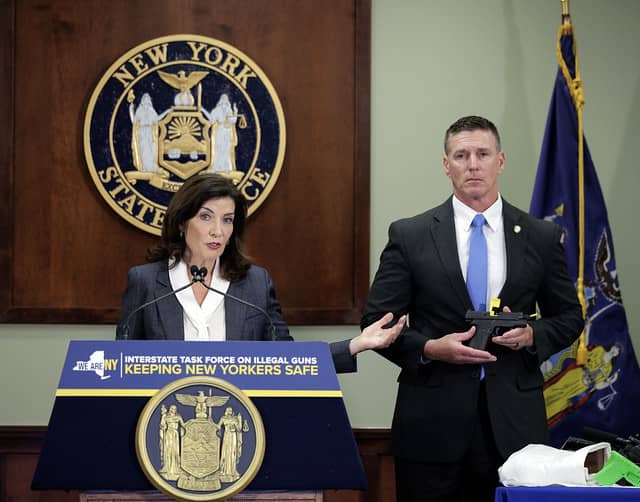
Scarborough’s Gun Control and Medicaid Comments Raise Concerns
Recent remarks by local leader, Scarborough, regarding gun control and Medicaid have stirred significant discussions within the gun community. Concerns have been voiced about his statements, particularly in light of ongoing national debates This blog post delves into Scarborough’s comments, the background of these debates, and why they have resonated with so many individuals.
The Context of Scarborough’s Comments
Scarbrough’s comments emerged during a recent town hall meeting where he addressed constituents on various topics, including gun control measures and Medicaid policy. While the aim may have been to foster open dialogue, many found his remarks both alarming and dismissive of the complexities involved.
Gun control has been a contentious issue for years, especially in light of increasing gun violence across the nation. Simultaneously, Medicaid—an essential program for millions of Americans—faces its own set of challenges, including funding cuts and access to services.
Key Issues Raised in Scarborough’s Comments
During the meeting, Scarborough made a series of comments that raised eyebrows and prompted responses from community members. Below are the key issues that were particularly concerning:
Gun Control Comments
- Minimization of Gun Violence: Scarborough suggested that recent statistics on gun violence were exaggerated, prompting backlash from those who believe that acknowledging the severity of the situation is vital for fostering effective policy change.
- Resistance to Reform: His comments on proposed gun control reforms hinted at a lack of support for necessary legislative changes, frustrating advocates who are fighting for safer policies.
- Lack of Empathy: Many felt that Scarborough’s remarks showed a disconnect from the experiences of those affected by gun violence, including victims and their families.
Medicaid Concerns
- Funding Cuts: Scarborough’s stance on Medicaid funding suggested a willingness to support cuts, a viewpoint that alarmed advocates for the vulnerable populations that rely on this program for healthcare.
- Access to Services: Comments made regarding the efficiencies within Medicaid were viewed as naive by some, given the complexities of healthcare access and the realities many individuals face.
- Dismissal of Stakeholder Input: Several community members felt that Scarbrough’s approach ignored the insights and experiences of healthcare professionals and those who work directly with Medicaid recipients.
The Community Response
In response to Scarborough’s comments, a significant portion of the community has voiced their concern through various platforms. Letters to the editor, social media posts, and protest gatherings have all highlighted dissatisfaction with what many perceive as neglectful leadership on critical issues like gun control and Medicaid.
Those in opposition have expressed a desire for leaders who listen and act in the best interest of the citizens they represent. It’s crucial for local politicians to recognize that their words carry weight and can influence public perception and policy.
The Importance of Constructive Dialogue
As discussions unfold, it’s essential to engage in constructive dialogue rather than dismissive rhetoric. Community leaders like Scarborough have a responsibility to address these sensitive topics thoughtfully and with a willingness to listen. Here are a few considerations for fostering better communication:
Suggestions for Improved Engagement
- Open Forums: Creating spaces for open discussions allows community members to share their perspectives and feel heard, leading to more informed decision-making.
- Data-Informed Policies: Acknowledging the importance of data in shaping policies can lead to meaningful change based on real-world outcomes rather than perceptions.
- Collaboration with Experts: Engaging with healthcare and public safety experts can provide valuable insights and create a more balanced approach to policymaking.
Conclusion
In a time of divisive politics, the remarks made by Scarborough on gun control and Medicaid should serve as a wake-up call for leaders everywhere. Communities need leaders who are willing to engage constructively with issues affecting their constituents profoundly, rather than minimizing or dismissing their concerns.
Gun control and healthcare are not mere statistics but rather have a direct impact on individuals and significant societal consequences. Leaders must prioritize transparency, actively listen, and handle these delicate matters with compassion and respect in order to advance toward a safer and healthier society for all.
- The Right Gear for Upland Hunting - December 21, 2024
- How to Get a Suppressor in a Few Steps - December 5, 2024
- What is The Protection of Lawful Commerce in Arms Act? - November 15, 2024



